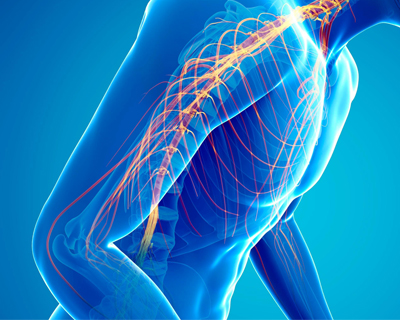
Blog
Decoding Parkinson’s Disease: Understanding Symptoms, Causes, and Stages
Introduction
Parkinson’s disease, an age-related degenerative brain condition, affects various aspects of an individual's health. This comprehensive guide explores the intricacies of Parkinson’s, from its definition to symptoms, causes, and stages.
What is Parkinson’s Disease?
Definition
- Parkinson’s disease involves the deterioration of a specific part of the brain, leading to a range of symptoms affecting muscle control, balance, movement, and more.
Impact on Health
- Beyond physical effects, Parkinson’s can influence senses, thinking abilities, mental health, and various aspects of daily life.
Who Does it Affect?
- Age-Related Risk:
- Risk increases with age, typically starting around 60.
- Gender Disparity:
- Slightly more common in men or individuals designated male at birth (DMAB) than in women or individuals designated female at birth (DFAB).
- Occurs rarely in adults as young as 20, often linked to familial cases.
How Common is Parkinson’s?
-
Prevalence:
- Second among age-related degenerative brain diseases.
- Most common motor (movement-related) brain disease.
- Affects at least 1% of people over 60 globally.
How Does Parkinson’s Affect the Body?
Biological Impact
-
Basal Ganglia Deterioration:
- Parkinson’s causes a specific brain area, the basal ganglia, to deteriorate.
- Results in a significant shift in brain chemistry, particularly involving dopamine.
-
Dopamine Deficiency:
- Lack of dopamine, a vital neurotransmitter, leads to slowed movements and tremors.
- Progression may cause dementia-like symptoms and depression.
Parkinson’s Disease vs. Parkinsonism
-
Parkinsonism Umbrella:
- Parkinsonism encompasses conditions with similar symptoms, including Parkinson’s disease.
- Other conditions like multiple system atrophy or corticobasal degeneration fall under Parkinsonism.
Symptoms and Causes
Recognizing Symptoms
Motor-Related Symptoms
-
Slowed Movements (Bradykinesia):
- Described as muscle weakness due to control issues. This can cause slowness of movement, difficulty initiating movement, and difficulty maintaining posture. It can also lead to clumsiness, tremors, and rigidity.
-
Resting Tremor:
- Rhythmic shaking of muscles at rest, common in 80% of cases. It is most noticeable in the hands but can also affect other parts of the body. It is caused by an imbalance in the chemicals in the brain that control movement. Medication, physical therapy, and surgery are among the options for treating this disorder.
-
Rigidity or Stiffness:
- Lead-pipe rigidity and cogwheel stiffness are characteristic. This rigidity allows the body to move with maximum efficiency and stability with minimal energy loss. It also provides the body with the necessary support for performing everyday tasks.
-
Unstable Posture or Gait:
- Hunched stance, shorter strides, and reduced arm movement while walking. These symptoms may indicate that a person has difficulty with balance and coordination. They may also be caused by pain, fatigue, or confusion. The following symptoms should be taken seriously and should be attended to by a physician as soon as possible.
Additional Motor Symptoms
-
Blinking Less Often:
- Symptom of reduced facial muscle control.
-
Micrographia (Cramped Handwriting):
- Result of muscle control problems.
-
Drooling:
- Occurs due to loss of facial muscle control.
-
Mask-Like Facial Expression (Hypomimia):
- Minimal facial expression changes.
Stages of Parkinson’s
-
Progression Over Time:
- Parkinson’s evolves over years or decades.
-
MDS-UPDRS Assessment:
- Main tool for classification, examining non-motor and motor aspects.
What Causes Parkinson’s?
Genetic Factors
-
Familial Parkinson’s Disease:
- Inherited from parents (10% of cases).
- Linked to specific genes, with variations causing unique features.
Idiopathic Parkinson’s Disease
-
Protein Misfolding Hypothesis:
- Problems with using the protein α-synuclein lead to misfolding.
- Accumulation of Lewy bodies causes toxic effects and cell damage.
Induced Parkinsonism
-
Medications, Encephalitis, Toxins:
- Certain medications, brain inflammation, exposure to toxins, or injuries are linked to parkinsonism.
- Effects may be temporary or persistent, depending on the cause.
Is Parkinson’s Contagious?
-
Non-Contagious:
- Parkinson’s disease cannot be contracted from another person.
Conclusion
Understanding Parkinson’s disease involves exploring its multifaceted nature. From its onset to its symptoms, causes, and stages, awareness is key. While Parkinson’s remains incurable, ongoing research offers hope for improved treatments and, ultimately, a better quality of life for those affected.